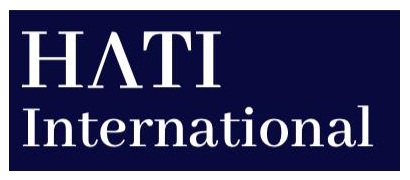The Massive Interest of Non-Healthcare Companies in the Healthcare Industry
Thanks to the proliferation of technology, like every other industry, the healthcare industry is also going through a rapid transformation. The industry is becoming more and more patient-centric, the demands for accessible care are increasing, the aging population is growing, hospitals are under tremendous pressure to keep the costs low, and at the same time, the quality of care is expected to be top-notch. Healthcare institutions have realized that they need a strong technology backbone to address these ever-increasing demands.
Healthcare organizations are turning to healthcare technology companies to help them address their requirements and help in their digital health initiatives. It is no surprise that the top four technology companies (Google, Apple, Amazon and Microsoft) are seeing tremendous opportunities in the health sector and are investing a lot of energies to create a strong base there. As seen in the research report from Business Insider Intelligence, the big four tech companies are riding on their strengths and trying to provide solutions to create opportunities for healthcare institutions and insurers.
Let’s take a look –
Google / Alphabet
Among the US tech giants, Google is probably the most active company when it comes to investments in healthcare. As one-third of the data generated throughout the world is categorized under healthcare sector, Google aims to apply Artificial Intelligence along with Machine learning for early and efficient detection of life-threatening diseases. These advancements will also assist in health insurance as well as interoperability of data.
Some notable accomplishments of Google in healthcare are
- Google has developed an AI Model to detect diabetic retinopathy diagnosis with high a level of accuracy. This model will allow doctors and nurses to screen more patients in less time and will allow for more timely diagnosis.
- Verily, an Alphabet company has joined hands with Stanford Medicine and Duke University School of Medicine to study 10,000 Americans over a period of four years under “Project Baseline”. Under this project, the volunteers will be studied for four years, comprehensive health data about them will be constantly collected, and studied to search for clues search for clues to predict heart disease and cancer.
- Google Ventures supports more than 60 healthcare enterprises and life-science startups along with 23AndMe (a company with the largest database of DNA in the world).
- Google has filed nearly 186 healthcare patents in 2013-2017
Clearly, the company has a dominance in the field of data storage and analytics – it definitely plans to leverage that expertise to make an impact in the area of population health.
Apple
Capitalizing on its loyal customer base, app store frameworks, and the growing popularity of Apple Watch, the company is trying to make consumers more invested in their health and participate in their health management.
As one of its such initiatives, in late 2017, Apple ventured into Apple Heart Study in collaboration with Stanford Medicine to improve its technology which is used to analyze irregular heart rhythms. Under this 15-months study, Apple Heart Study app collects heart rate data from its Watch to track any irregularity and notifying watch owners of life-threatening illnesses.
Its other initiatives in the healthcare space include –
- Apple added new APIs that allow apps to track symptoms of Parkinson’s Disease with the help of tremors.
- In 2018, Apple also added new ResearchKit tasks that can help researchers collect additional information focused on dBHL hearing test, speech-against-noise hearing test, and a test that lets users check each eye’s vision.
- Airpods are installed with a feature to test hearing power and speech recognition for any impediments.
- HealthKit API is an effort of Apple encouraging open health record data where Apple users can, with their own choice, share their clinical records with company developers through a trusted network.
Amazon
Amazon is leveraging its robust platform and supply chain to establish itself as a solid distribution platform for medical supplies.
- Since 2014, Amazon has been in the business of distribution of medical supplies in more than 43 states. It sells medical supplies and durable medical equipment to a wide range of hospitals and health care providers.
- Amazon has partnered with Berkshire Hathaway and JPMorgan Chase with an aim to reduce health care costs for its employees.
- Amazon has also recently launched its own range of over 60 over-the-counter health products.
- Amazon’s secret lab, internally known as 1492 and Amazon X, is working on cancer research.
- Amazon’s recent acquisition of online pharmacy, PillPack, has shaken up the pharmaceutical industry.
Microsoft
Microsoft is using AI, cloud computing and machine learning in the healthcare industry since 2017. This largest tech company had made significant efforts in diabetic research and patient tracking. Microsoft Azure is becoming a primary choice for patient health record storage and management. There are 73 patents related to healthcare filed in the name of Microsoft.
The company has accomplished a lot in genomics, cybersecurity, and cloud computing. Microsoft’s Healthcare initiative, called Healthcare NExT, has various AI and cloud computing projects related to healthcare.
Apart from this, Microsoft has launched various cloud-based processing tools for clinicians and scientists pursuing genomics research. A team of Microsoft scientists has also published a study on how AI models can be used to improve CRISPR gene-editing outcomes.
Healthcare Lead by Technology
It is quite evident that the fast-moving world of digital health is being dominated by technology companies. Healthcare institutions are working closely with technology companies to deliver quality care, reduce costs of care, minimize medical errors, improve health outcomes, and enhance patient satisfaction. The tech companies are leveraging their individual expertise in the areas of cloud, AI, storage, analytics, consumer devices, etc. to help healthcare organizations deliver on these promises.




